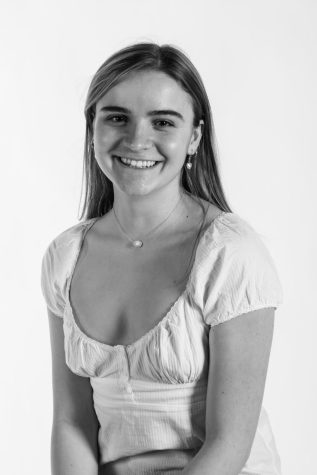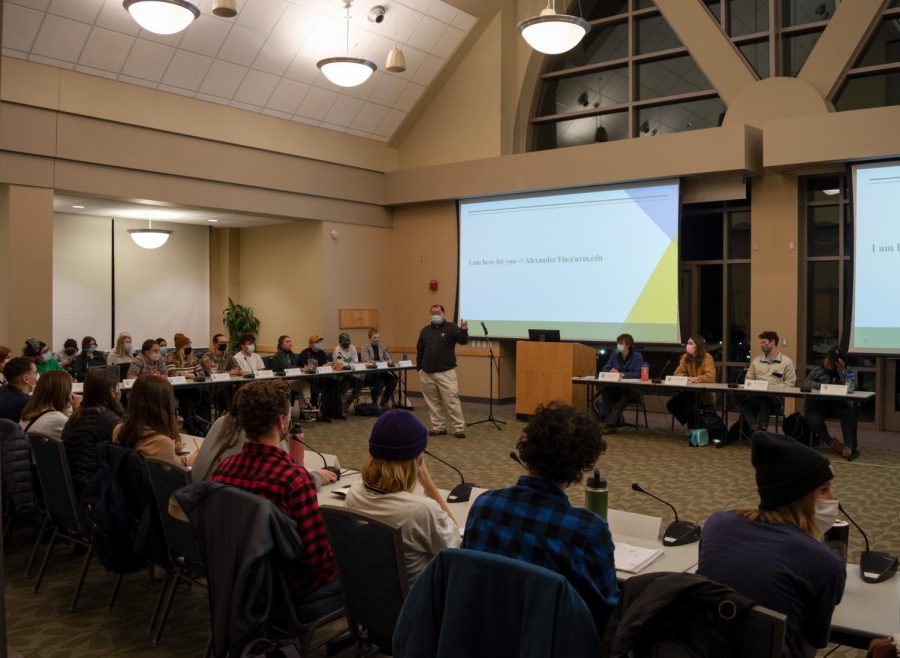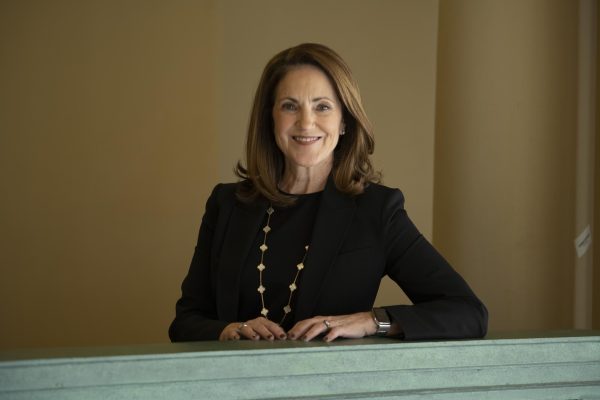UVM needs to improve teaching methods, data researcher says
Alexander Yin, executive director of the office of institutional research, speaks at an SGA meeting Nov. 2. Yin covered issues of diversity in front of SGA senators.
UVM faculty need to improve teaching methods so students can learn better in the classroom, said Alexander Yin, executive director of the office of institutional research.
The office of institutional research’s data suggests students are not fully equipped to communicate what they’ve learned at UVM, Yin said. He presented his findings to SGA at its Nov. 2 meeting on the importance of data analytics in understanding student needs.
Although students haven’t attributed their learning to the University, it’s not because they haven’t absorbed the content, Yin stated in a Nov. 6 email to the Cynic. The perceptions students hold about their academic rigor may be a result of the alternative teaching techniques UVM professors use in class, such as hands-on and outdoor learning.
“The question is, why don’t students think UVM is challenging them or why don’t they think we have a stronger academic emphasis,” Yin’s email stated. “Is it because UVM does more active learning?”
Despite UVM first-years and seniors reporting they spent more hours reading and writing than the national average, students felt they were not as challenged by UVM curriculum in comparison to other institutions, according to the 2017 National Survey of Student Engagement.
Yin stated he would be working with his staff to get an updated 2020 general report posted but the numbers are relatively similar to that of 2017, according to a Nov. 6 email to the Cynic.
Although Yin said he can’t pinpoint the exact cause of the survey results, based on his assessments, faculty should shift their teaching methods to reinforce the information students are learning in the classroom.
“What I’m hoping for is that as we get better with the learning outcomes assessment, students will be actually very happy to express what they are learning in the classroom and be able to articulate it in job interviews,” Yin said.
Additionally, Yin is working with faculty and administrators to change the advising program at UVM after collecting data that suggests faculty advisers aren’t always beneficial to first-year students, he said. In part, this is because first-years are often still trying to figure out that major.
Last year, 25.6% of students who started in the fall changed their major after the first year, according to UVM Undergraduate Retention and Graduation Rates. Therefore, Yin said he supports the shift the University is making from faculty advisers to professional advisers.

(She/Her)
Kira Schaefer is a sophomore public communications major from Westchester, N.Y. and is super excited to start as the podcast editor for the...










